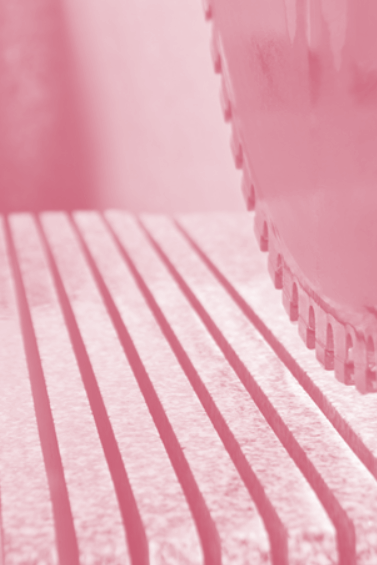Stone ban considered
 Safe Work Australia has opened public consultation on a planned engineered stone ban.
Safe Work Australia has opened public consultation on a planned engineered stone ban.
Between 2010-11 and 2020-21 there were 488 accepted workers’ compensation claims for silicosis in Australia.
Silica is a naturally occurring and widely abundant mineral that forms the major component of most rocks and soils. The most common type of crystalline silica is quartz.
Its abundance varies from just 2 per cent in marble and limestone to 20 to 45 (typically 30) percent in granite and 70 to 95 per cent in natural sandstone.
Engineered stone can contain up to 97 percent silica.
Crystalline silica is most dangerous to health when dust is generated, becomes airborne and is then inhaled by a worker.
Safe Work Australia’s Decision Regulation Impact Statement: Managing the risks of respirable crystalline silica at work analyses the impacts of regulatory and non-regulatory options to manage the risks of respirable crystalline silica at work.
On 28 February 2023, WHS ministers considered the statement and agreed to the following options as recommended by Safe Work Australia:
-
Option 2: National awareness and behaviour change initiatives.
-
Option 5a: Regulation of high-risk crystalline silica processes for all materials (including engineered stone) across all industries.
-
Option 6: Further analysis and consultation on the prohibition on use of engineered stone including consideration of silica content levels and other risk factors, and a national licensing system for products that are not subject to a ban, or legacy products.
The Decision RIS follows significant work undertaken by Safe Work Australia since 2018 to reduce exposure to respirable crystalline silica and prevent silicosis and silica-related diseases, including:
-
reducing the workplace exposure standard for respirable crystalline silica
-
publishing the Working with silica and silica containing products guide and translating this into six other languages
-
publishing the model Code of Practice: Managing the risks of respirable crystalline silica from engineered stone in the workplace
-
amending the model WHS Regulations to clarify that uncontrolled processing of engineered stone is prohibited, and
-
undertaking the ‘Clean Air. Clear Lungs.’ campaign to raise awareness of occupational lung diseases, aimed at high-risk industries such as construction, agriculture, manufacturing and those working with engineered stone.
“Workplace exposure to respirable crystalline silica has led to an unacceptable increase in the number of cases of silicosis and other silica-related diseases,” says Safe Work Australia CEO Michelle Baxter.
“Today, Safe Work Australia commenced the next stage of consultation on a prohibition on the use of engineered stone.”
Consultation is open through Safe Work Australia’s Engage website until 2 April 2023.
“Stakeholder feedback from the consultation will inform a report to be provided to WHS ministers for their consideration,” Ms Baxter said.
“We will also work closely with WHS regulators and other stakeholders including industry and unions, to implement the options agreed by WHS ministers, including further national awareness and behaviour-change initiatives and regulation of high-risk crystalline silica processes for all materials, including engineered stone, and across all industries.
The authority is encouraging all stakeholders to go to Safe Work Australia’s consultation website Engage to take part.








 Print
Print